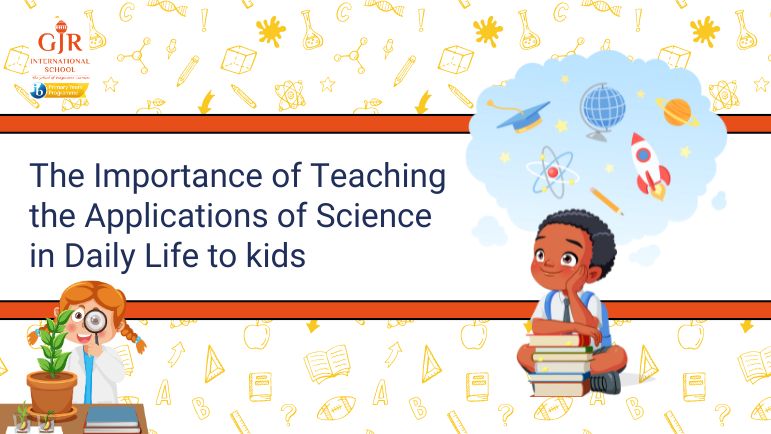
Science has an all-pervading nature, and its presence is felt everywhere in the daily aspects of our lives. From simple and mundane things like how water boils to complicated systems like a spacecraft, science has a role to play everywhere. Since science is an important part of curriculum for school students, it is necessary that children learn basic scientific concepts not just theoretically but also practically. Learning the science involved in our daily activities can make kids understand science more effectively and profoundly rather than the learning obtained through just books. Therefore, the best way to make children acquainted with scientific concepts is by making them realize how science is present in our day-to-day life.
It is said that practical learning helps children learn better and makes them grasp concepts quickly. Children also tend to retain knowledge for a longer period when they learn through observing real-life activities. A small example of this would be when a kid observes water boiling at home. You can teach him/her that the boiling occurs when the vapor pressure of the liquid becomes equal to the atmospheric pressure. This would help them understand the concept better than just by reading about it in a book since learning through observing a real event has a deeper impact on the child’s brain. Also, teaching them simple science facts about the objects at home, such as how much voltage is required for a bulb to glow, etc., would make them observe things around them more and improve their knowledge about the real world.
Observing the workings of science in day-to-day life inculcates critical thinking and the ability to analyze at a young age. Children are able to think logically and from a scientific point of view if they are provided such training at home. Additionally, learning science practically broadens the mindset of kids. It can make them question and challenge well-established notions, which is an important aspect of being a scientist. Most importantly, their problem-solving skills are developed, and they can perform with flying colors at school! Also, if your child wants to chose science as a career path, these qualities can prepare and train children in becoming a scientist or innovator in the future.
Children are known to be curious by nature and tend to ask a lot of questions. They are inclined to explore the world around them at a young age, which is natural. Teaching them the practical applications of science through experiments or by mere observing satisfies and nurtures their inborn curiosity. Teach them the science behind simple things at home, such as how a television or mobile phone works. Such examples encourage them to be more curious and explore the world around them.
Yes, learning can be exciting and fun, and you can prove this to your child. You can set up science experiments at home and make them try out any concept or topic that they may have learned at school. Performing experiments along with your kids at home promotes a healthy and positive atmosphere at home, and it can make learning more enjoyable.
Overall, teaching the applications of science in our daily life to kids has immense advantages, and such learning methods should be adopted by both teachers and parents at home. Fostering a love and passion for science makes children not only excel academically but also enables them to be open-minded, curious, and well-informed. So, set up a cool science lab for your little one soon! You may be nurturing a future scientist or tech innovator at your home!